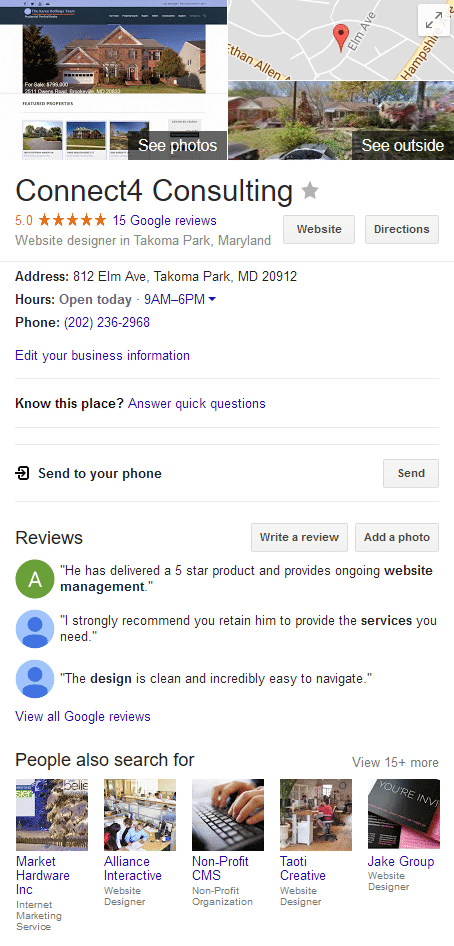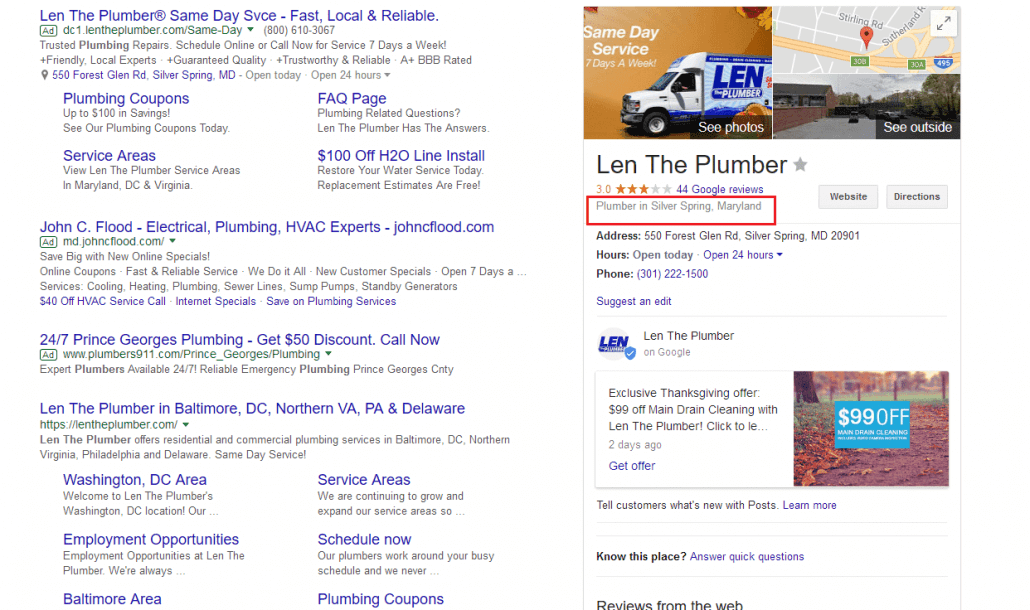Inaccurate Business Information Is Not Good For Your Business!
In 2019, having consistent and accurate business information across the internet is critical for your business. With the ubiquity of internet service and devices, most people search for products and and services online. If you’ve never done this before, it may seem like an obvious and trivial thing – how hard could it be to manage and regularly update your online presence?
If you’re not sure where to start, run a scan to check your online presence and see what the internet says about your business.
Who needs to update their business information online?
- New businesses
- Existing businesses without an online presence
- Businesses that have relocated or changed their contact information
Inaccurate business information is bad for business. Every business needs to update their business information online.
What business information needs to be updated?
- NAP – Name, Address, Phone Number
- Company Website
- Operating Hours – this is absolutely critical if you are open to the public – restaurant or doctor’s office
- Products
- Services
- Payment Methods Accepted
- Business Specialties
When business information is added to a website that is out of your control it becomes a ‘citation’ or business listing. Citations can be great for you because they help customers who search for your products and services online find you.
Where do you have to update your business details?
There are many citation sites online, but it’s important to make sure your business information is up to date across major online directories and websites. For starters, your business information must appear and be correct on the following sites:
- Google (Google My Business)
- Bing
- Yelp
If your business is in a niche category like law, you will need to consider the following sites as well:
How do you update your business information on all these different citation sites?
You can add and update your business information to online directories manually. You will have to go to every site, create an account, username, password, remember all of those, request an update, and wait for your information to appear.
Alternatively, you can use Connect4 Consulting’s Citation Submission Service and we can do this for you. You update your information once and our service will add this information to all of your relevant citation directories.
Nine reasons why your business information must be correct online
- 68% of consumers would stop using a local business if they found incorrect information in online directories. (Local Citations Trust Report, BrightLocal, 2018)
- 93% of consumers say they are frustrated by incorrect information in online directories. (Local Citations Trust Report, BrightLocal, 2018)
- 80% of consumers lose trust in local businesses if they see incorrect or inconsistent contact details or business names online. (Local Citations Trust Report, BrightLocal, 2018)
- In the last 12 months, 71% of consumers had a negative experience because of incorrect local business information found online. (Local Citations Trust Report, BrightLocal, 2018)
- 30% of consumers would go to a competitor if they couldn’t locate a business because of incorrect information found online. (Local Citations Trust Report, BrightLocal, 2018)
- In the last year, 22% of consumers visited the wrong location for a business because the address was incorrect online. (Local Citations Trust Report, BrightLocal, 2018)
- 40% of consumers would give up looking for a local business that they couldn’t find because the address was wrong online. (Local Citations Trust Report, BrightLocal, 2018)
- After seeing a local business listing online, 24% of consumers will call the business before going to visit it. (Local Citations Trust Report, BrightLocal, 2018)
- Upon finding an inaccurate listing, consumers are more likely to blame the local business than the director. (Local Citations Trust Report, BrightLocal, 2018)
If you’re losing potential customers because of inaccurate business information, contact us today.
For more information on local citations, see:


